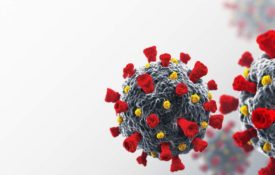-
A Decoder That Uses Brain Scans to Know What You Mean — Mostly
Scientists have found a way to decode a stream of words in the brain using MRI scans and artificial intelligence. The system reconstructs the gist of what a person hears or imagines, rather than trying
-
What’s That Smell? It Might Just Be the Next Big Thing in Travel.
A dozen travelers gather around Martin Schaffner’s 16th-century painting “Christ in Limbo,” and take a deep breath. Thanks to hand-held scent diffusers these tourists are getting a whiff of smoke and sulfur to evoke the
-
Essential Trust: The Brain Science of Trust
What happens in your brain when you decide to trust someone? “When people make decisions to trust, it’s kind of the same as when they make decisions to gamble,” Jamil Zaki says. “You see activities
-

A Broader Definition of Learning Could Help Stimulate Interdisciplinary Research
Humans and other mammals aren’t the only entities capable of adapting to their environment—schools of fish, robots, and even our genes can learn new behaviors.
-

Protecting Children’s Psychological Well-being Could Help Strengthen Their Hearts as Adults
Fostering children’s psychological well-being could help reduce their risk for heart conditions as adults, according to findings from a longitudinal study of British people born in 1958.
-

Psychology Meets Biology in COVID-19: Past, Present, and the Road to Recovery
Psychological scientists have long known that psychological and social factors can affect our responses to viral infections and vaccinations, but that critical connection seems to have eluded many of the public health officials and others charged with leading the global response to the COVID-19 pandemic in its early days.

